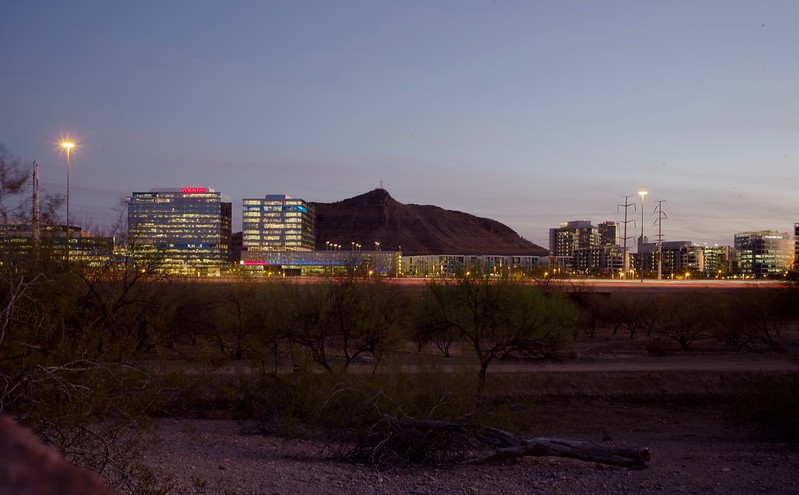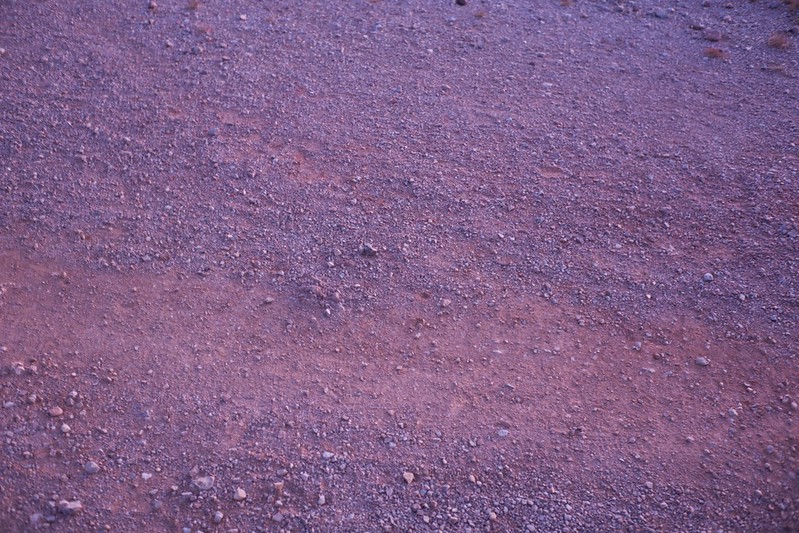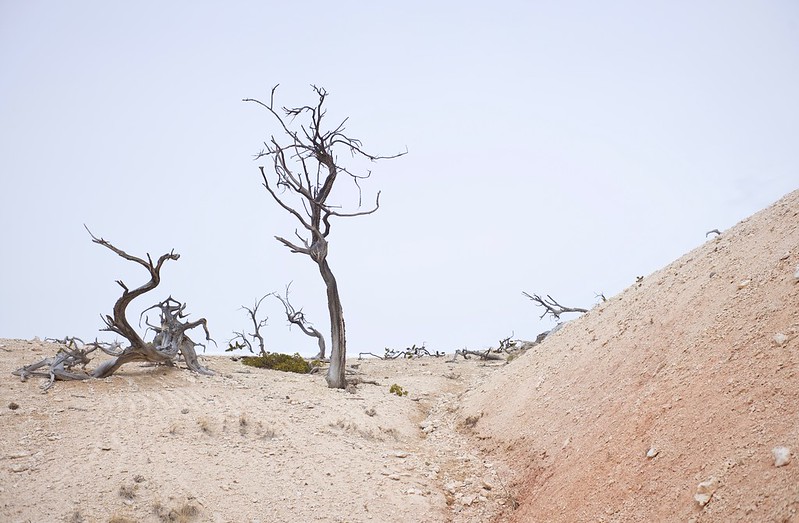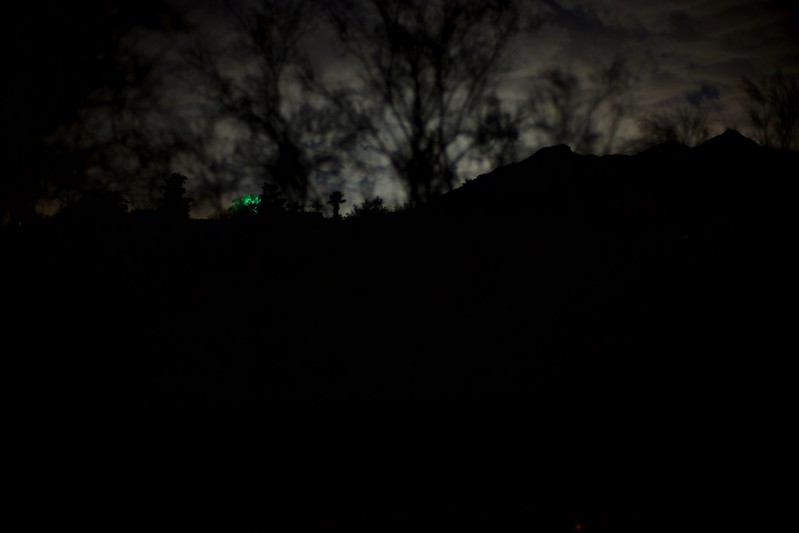Sonoran desert 020171123 to 020171206
Excerpts from Dust and Shadow Fieldnotes #2 by Maja Kuzmanovic and Nik Gaffney

We hiked into the Superstitions in search of the mythical source of dust storms, finding enigmatic petroglyphs and a dry creek bed. From our higher vantage point the city became a mirage, merging into the hazy plain punctuated by saguaro cacti. Centuries of civilisation evaporated in that mirage.
Deserts possess a particular magic, since they have exhausted their own futures, and are thus free of time. J.G. Ballard. The Atrocity Exhibition
Sacred objects, collected materials and traces of the desert across suburbia became text. A tuft of coyote’s fur, a date, a red rock, a cholla spike, and a drop of mezcal, drunk with friends under the vast, darkening skies.
List 1
C14 Clocks
Mythologies
Xenogenesis
City and the City
Reclaiming animism
Governing the Commons
Anthropology in the time of the Anthropocene
The mushroom at the end of the world
The Enchantment of Modern Life
Body ritual among the Nacirema
The good natured feminist
The last angel of history
Customs in Common
Humankind
Anathem
2312

“Arms trading, dictatorships and murder are environmental politics.” points out China Miéville. They cannot be separated from pollution, climate change and renewable energy targets.
The Anthropocene is the time at which the human becomes truly thinkable in a non-teleological, non-metaphysical sense. The waste products in Earth’s crust are also the human in this expanded, spectral sense, as if what the human becomes is a flickering ghost surrounded by a penumbra of flickering shadows that seem to hover around it like a distorted halo. Tim Morton, Humankind
What are the environmental politics in the North American South West, specifically to life in the desert? What are the implications for the people, plants, plastics (etc) and the environment they live in? What peculiar futures or parallel presents exist in this “Valley of the Sun”? What new worlds can emerge from a region swayed by the unpredictability of heatwaves, poor water distribution and over-enthusiastic promises of the tech industry?
[T]he importance of propositions is not limited to matters of truth and falsity. Language is used to evoke attention to features of the world that another person may be missing. Perhaps someone wants me to look up at a branch in a nearby tree. She has propositional feelings of a rare bird being there. Her interest may be in my entertaining the same proposition, but the most effective method may be just to point with a certain expression on her face, or to say “look quick” with some excitement. These gestures may lead to the result better than the sober statement that there is a rare bird there. Of course, it may be that the proposition the speaker entertained was false. Perhaps the bird in the tree is of a common species. […] The propositional feeling is always clothed in some emotional tone. These are often communicated with the propositions.” Gorgias Romero, That is interesting but is it true

We travelled through layers of signals, systems and stories in search of the hardened sediment of metaphoric undercurrents. The libertarian ethos and protestant work-ethic ration desert time into the neurotic drip and trickle of temporal scarcity. Time is submitted to a relentless economic valuation. Work must continue, no matter the conditions, in the “Sand of the Free, Sprawl of the Brave”. Idleness is still considered the devil’s playground, siestas close to sacrilege. The distrust of “elites” and rhetoric of self-reliance encourage a culture of conservative individualists and a precarious belief in the Dominion of Man over Earth.
To learn which questions are unanswerable, and not to answer them: this skill is most needful in times of stress and darkness Ursula Leguin, The Left Hand of Darkness
Water rights and food sovereignty stretch public infrastructure close to breaking point. Environmental problems tend to be tackled as single issues with inventive technological solutions.
Bear in mind that everything that exists is already fraying at the edges, and in transition, subject to fragmentation and to rot. Marcus Aurelius, Meditations
Yet a larger conundrum remains; Phoenix exists far from equilibrium, requiring massive external inputs for its continued existence. Despite the desert, not within the desert. Holding onto an idealised image of urban life, haunted by the shadow of its possible demise. Water, power and other essentials imported from afar to keep up an appearance of a stable oasis. The myth of the Wild West in a desert on demand.
I have also tried to make the desert my own. But none us will be able to capture and resell the lonely magic. That belongs to the High Desert and to experience it, you will have to let yourself get lost. Ivy Pochoda, In the California Desert

All is shadow mixed with dust, and there’s no voice but in the sounds made by what the wind lifts up or sweeps forward, nor silence except from what the wind abandons. Fernando Pessoa, The Book of Disquiet
List 2
The Wilderness Act
The dark mountain
Hope in the dark
Ecology of Mind
The Imperative
Solarpunk
Dust studies
Dark ecology
Book of Sand
Minutes to midnight
Too like the lightning
In praise of shadows
Autobiography of Red
Staying with the trouble
In this time of diminished expectations, I look for disturbance-based ecologies in which many species sometimes live together without either harmony or conquest. Anna Tsing, The Mushroom at the End of the World

I am not interested in reconciliation or restoration, but I am deeply committed to the more modest possibilities of partial [multispecies] recuperation and getting on together. Call that staying with the trouble, (…) with less denial and more experimental justice. Donna Haraway, Staying with the trouble
We reached Shadow Belmont. A place deeply familiar with shade. Shade architecture, shaded transport, sheltered time. A cityscape layered with a latticework of porches, pergolas, verandas, galleries, awnings, canopies, umbrellas and trees. From above the city looks like a desert garden. The shade of the high canopy stands on cactimorphic succulent pillars, doubling as public water sources. Closer to the ground, multi-trunked mesquite marquees diffuse light across outdoor kitchens and intimate courtyards.
BUILDINGS SELF-AGGREGATED OUT OF ANGLES AND shade China Miéville, Kraken
A city in a city living the experiential time of spiders, snakes and saguaro. The variable abundance of time is sensed and modulated by the antennae-centric tech industry. Deep listening technologies. Nomad tech on smart grids accustomed to oscillations of resources.
… machines themselves – rather than destroying aura or hastening the disenchantment of the world – were granted an uncanny power to animate the inanimate, to emancipate and spiritualise “vibrant matter.” The powers of technology triggered aspirations toward an intersubjectivity that would embrace more than just humans; they lent support to the view that all elements of the world would participate in a single, living, intelligent, and perhaps divine substance. (…) Rethinking technology meant rethinking the basis of the social bond and the order of the universe and, potentially, living very different lives. Updated to the present, mechanical romanticism suggests that even if solutions must be small and local, they require a conceptual and aesthetic frame that is deep and wide.“ John Tresch, Romantic Machine
This place does not shy away from its own shadow. The shadows of dust storms, water shortages, gun-slinging individualism, heat delirium and venomous critters, the fickleness of the desert and its inhospitable heart.
Spectrality, the way a thing keeps exceeding itself, or is displaced from itself, or is ecstatically outside itself (ekstasis, “ex-sistence”), doesn’t just belong to human being […] Humankind is flickering, displaced from itself, ecstatic, rippling and dappled with shadows. Shadows made not only by some other entity interacting with it, like the sun through the trees, but shadows that are an intrinsic part of the thing.” Timothy Morton. Human Kind
With drought cycles lengthening, water tokens fluctuating and heat waves becoming less predictable, self-reliance is gradually giving way to the security of commons management, stewarding the preciousness of life, in a desert teeming with life.
List 3
A Practical Guide to Unconscious Reasoning
Into the universe of technical images
Panpsychism & Noumenautics
The word for world is forest
How forests think
Q is for Quicken
Point Omega
Ventus
Finite media
Crystal radio
Geology of media
Romantic machines
As the day comes to an end, the twilight dissolves the surfaces, absorbing their colors, leaving their reflections suspended in space. The luminous transparency in open spaces condenses into beams and phosphorescence. Things lose their separatedness. The shadows advance over the colors and the contours that they outlined are lost. Darkness infiltrates the landscape, obliterating its paths and filling up its open planes. Overhead the blue of the atmosphere recedes and the starlights drift over unmeasurable distances. Alphonso Lingis, The Imperative

Dust and Shadow Reader Vol. 1. Previous: recipes. Next: bibliography.
